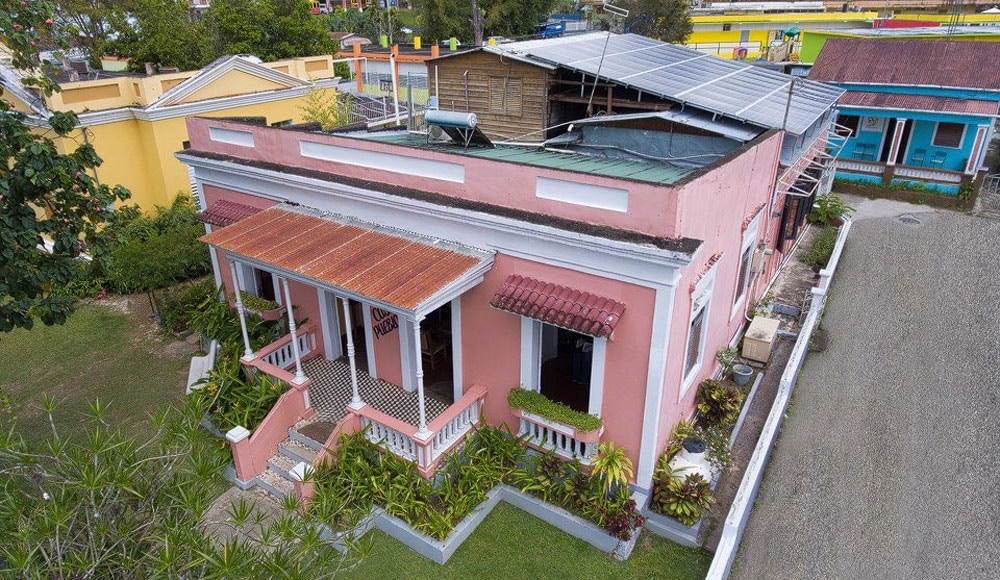Inauguration 2017 Special Coverage w/ Angela Davis, Naomi Klein, Ralph Nader & More
Menu

Special coverage in the Trump Era
From Public Citizen's Corporate Presidency site: "44 Trump administration officials have close ties to the Koch brothers and their network of political groups, particularly Vice President Mike Pence, White House Legislative Affairs Director Marc Short, EPA Administrator Scott Pruitt and White House budget director Mick Mulvaney."
Dark Money author Jane Mayer on The Dangers of President Pence, New Yorker, Oct. 23 issue on-line
Can Time Inc. Survive the Kochs? November 28, 2017 By Jane Mayer
..."This year, among the Kochs’ aims is to spend a projected four hundred million dollars in contributions from themselves and a small group of allied conservative donors they have assembled, to insure Republican victories in the 2018 midterm elections. Ordinarily, political reporters for Time magazine would chronicle this blatant attempt by the Kochs and their allies to buy political influence in the coming election cycle. Will they feel as free to do so now?"...
"Democracy in Chains: The Deep History of the Radical Right’s Stealth Plan for America" see: our site, and George Monbiot's essay on this key book by historian Nancy MacLean.
Full interview with The New Yorker’s Jane Mayer March 29, 2017, Democracy Now! about her article, "The Reclusive Hedge-Fund Tycoon Behind the Trump Presidency: How Robert Mercer Exploited America’s Populist Insurgency."
Democracy Now! Special Broadcast from the Women's March on Washington
The Economics of Happiness -- shorter version
Local Futures offers a free 19-minute abridged version of its award-winning documentary film The Economics of Happiness. It "brings us voices of hope of in a time of crisis." www.localfutures.org.
What's New?
April 03, 2018
"The Battle for Paradise"
An important piece in The Intercept, March 20, 2018 on current struggles for control over the island's post-hurricane future.
Excerpt: "It’s hard to imagine an energy system more vulnerable to climate change-amplified shocks than Puerto Rico’s. The island gets an astonishing 98 percent of its electricity from fossil fuels. But since it has no domestic supply of oil, gas, or coal, all of these fuels are imported by ship. They are then transported to a handful of hulking power plants by truck and pipeline. Next, the electricity those plants generate is transmitted across huge distances through above-ground wires and an underwater cable that connects the island of Vieques to the main island. The whole behemoth is monstrously expensive, resulting in electricity prices that are nearly twice the U.S. average.

Casa Pueblo
And just as environmentalists like Massol-Deyá had warned, Maria caused devastating ruptures within every tentacle of Puerto Rico’s energy system: The Port of San Juan, which receives so much of the imported fuel, was thrown into crisis, and some 10,000 shipping containers full of much-needed supplies piled up on the docks, waiting to be delivered. Many truck drivers couldn’t make it to the port, either because of obstructed roads, or because they were struggling to get their own families out of danger. With diesel in short supply across the island, some just couldn’t find the fuel to drive. The lines at gas stations stretched out by the mile. Half of the island’s stations were out of commission altogether. The mountain of supplies stuck at the port grew ever larger...
...Several Puerto Ricans I spoke with casually referred to Maria as “our teacher.” Because amid the storm’s convulsions, people didn’t just discover what didn’t work (pretty much everything). They also learned very quickly about a few things that worked surprisingly well. Up in Adjuntas (Casa Pueblo), it was solar power. Elsewhere, it was small organic farms that used traditional farming methods that were better able to stand up to the floods and wind. And in every case, deep community relationships, as well as strong ties to the Puerto Rican diaspora, successfully delivered lifesaving aid when the government failed and failed again."
Read full article, on the promise of projects like Casa Pueblo, a beacon of light (solar generated) and local food and education, in a critical situation of post-disaster recovery threatened by privatization and a "very different version of how Puerto Rico should be radically remade after the storm, and it is being aggressively advanced by Gov. Ricardo Rosselló in meetings with bankers, real estate developers, cryptocurrency traders, and, of course, the Financial Oversight and Management Board, an unelected seven-member body that exerts ultimate control over Puerto Rico’s economy."
See interview with Naomi Klein on the situation in Puerto Rico on Democracy Now!, March 21, 2018: The Battle for Paradise”: Naomi Klein on Disaster Capitalism & the Fight for Puerto Rico’s Future

